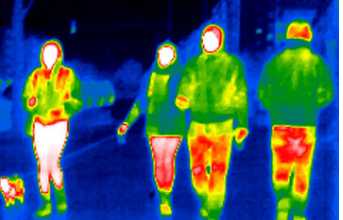Antarctic Sea-Ice Hits Record Lows

Satellite data reveals that the Antarctic Sea-Ice Hits Record Lows has reached unprecedentedly low levels during winter, defying previous records and raising concerns about the impact of global warming on this once-resistant region.
Walter Meier, a sea-ice monitoring expert at the National Snow and Ice Data Center, describes the situation as “mind-blowing” due to the extreme departure from historical norms.
Antarctic Sea-Ice Hits Record Lows
This alarming decline in Antarctic Sea-Ice Hits Record Lows has far-reaching implications, according to polar experts. Antarctica’s expansive ice cover plays a crucial role in regulating the planet’s temperature. Its reflective white surface bounces the Sun’s energy back into the atmosphere and cools the adjacent waters. Without this cooling effect, Antarctica could transition from being Earth’s refrigerator to a heat contributor.
The extent of sea-ice in the Antarctic Sea-Ice Hits Record Lows Ocean now measures less than 17 million square kilometers, significantly below the September average and previous winter record lows. This missing ice spans an area approximately five times the size of the British Isles.
Dr. Meier expresses doubts about a substantial recovery of the sea-ice.
Identifying the precise factors behind this year’s low sea-ice remains a challenge for scientists. Antarctic Sea-Ice Hits Record Lows Against a backdrop of numerous global temperature records being broken, some experts emphasize the significance of dwindling sea-ice as a critical indicator of change.
Dr. Robbie Mallet of the University of Manitoba, situated on the Antarctic Sea-Ice Hits Record Lows peninsula, underlines the heightened difficulty in conducting research amid the thin sea-ice, which poses potential dangers, including drifting out to sea.
Sea-ice forms during the Antarctic Sea-Ice Hits Record Lows (March to October) and typically melts during summer. It is an integral part of a complex system that includes icebergs, land ice, and vast ice shelves that extend from the coast.
Sea-ice serves as a protective barrier for land ice and prevents ocean warming. As it diminishes, dark patches of ocean absorb sunlight, triggering the ice-albedo effect. This feedback loop amplifies ice melting and contributes heat energy to the planet, disrupting Antarctica’s role as a temperature regulator.
Professor Martin Siegert, a glaciologist at the University of Exeter, raises concerns about the potential consequences, deeming it a “disaster for the world.”
Professor Anna Hogg, an Earth scientist at the University of Leeds, notes that current ice sheet losses in Antarctica are already within the worst-case scenario range of predictions. The loss of land ice from Antarctica has contributed to a 7.2mm rise in sea levels since the 1990s, with the potential for catastrophic impacts on coastal communities if this trend continues.
READ MORE TECH NEWS




